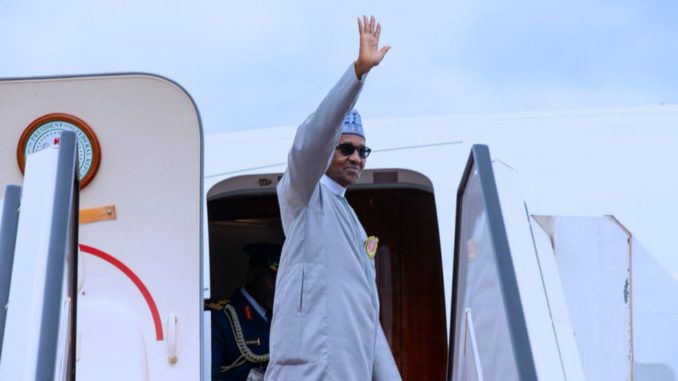
For most Nigerians and the Organised Private Sector, their prospects in 2020, once trumpeted as the threshold year for the country’s economic accession, appear gloomy indeed. The Lagos Chamber of Commerce and Industry captured the pervasive mood in its Economic Review and Outlook 2020, forecasting continued high cost of doing business on the back of poor infrastructure, insecurity and adverse fiscal and monetary policies. The President, Major General Muhammadu Buhari (retd.), needs to muster a sense of urgency to improve the operating business environment to attract massive investment without which the economy cannot achieve impactful growth.
Making the environment attractive for domestic and foreign investment should be the topmost priority if the country is to climb out of the rut. Today’s situation is fraught and belies the self-adulatory posture of the regime. Unemployment, the most common measure of an economy’s state of health, though put at 23.1 per cent in the third quarter of 2018, Minister of Labour and Employment, Chris Ngige, fears that it would hit 35.5 per cent this year. LCCI’s Director-General, Muda Yusuf, cites other lingering challenges such as inflation, which hovered between 11.2 and 11.85 per cent in 2019; multiplicities of taxes and levies; higher wage bill, exchange rate abuses and ports/borders issues as inhibitors to investment and business activities.
Appallingly, the regime has been hesitant and flat-footed in confronting the power sector quagmire; but without resolving this, the economy will continue its ponderous motion, exposed to shocks from the volatile international oil market and unable to unleash its productive capabilities. But while confusion defines the regime’s handling of the power sector, cynicism and obduracy guide its statist policies in the downstream oil sector. Combined, the four state-owned refineries recorded operating losses of N132 billion in 2018 and N77.15 billion in the first six months of 2019. Bizarrely, the Buhari regime is unusually decisive, sticking to the primitive template of holding on to loss-making refineries, wasting an estimated N3 trillion importing refined products, including paying out billions in cash in a corrupt subsidy arrangement despite having domestic crude oil production capacity of 2.5 million barrels per day.
Getting the economy moving at brisk pace requires a major jolt to make the environment safe for business. Dollops of investment are required. The regime rightly claims credit for Nigeria’s movement by 15 paces, from 146 in 2018 to 131 out of 190 countries ranked in the World Bank’s Ease of Doing Business Index 2019 on the back of modest reforms that officials have struggled to see through at the ports, banks and in business processes. But the economy needs more than middling incremental improvements under the regime’s Economic Recovery and Growth Plan. Policies like the Importer and Exporter Foreign Exchange Window and tightening of the monetary policy have slowed down inflation and moderated the parallel forex market.
Our rating as one of the 10 “most improved economies” by the World Bank should, however, be placed in the context of the meagre 1.9 per cent growth in Gross Domestic Product in 2018 and 0.8 per cent in 2017. Recall that the global lender had repeatedly warned over the years that the country needs consistent double digit growth and $20 billion annually over 10 years to overcome its dire infrastructure and unemployment deficits. From an average yearly 5.3 per cent GDP growth rate 1960 to 1978, China was propelled to the world’s No.2 economy by regular annual growth rates up to 2010, according to the United States Congressional Research Service. By skillfully leveraging the ports and trade practices, the Asian Tigers – Hong Kong, Taiwan, Singapore and South Korea – invested heavily in infrastructure, compulsory education and industrialisation. Liberal policies that opened up the space are credited with the massive infusion of foreign and domestic investment that enabled them to become leading exporters and to create first rate multinational corporations.
What is needed now is borrowing from successes elsewhere, to draw in investors through robust business-enhancing policies. Starting with security, Buhari should follow through on his promise to secure the country. Terrorism, banditry, vandalism, communal and sectarian violence, gangland wars and the atrocious impunity and rampage of criminal herdsmen have rendered the country unsafe and grounded productive activities in many places; the exodus from the farms has been particularly devastating on food security and employment.
The government has neither the resources nor the ability to single-handedly fund ports, railways and airports upgrade. Borrowing forever from China to do this has proved prohibitive and delivered poor results; better to concession large chunks of these infrastructure projects and enter into Public-Private Sector Partnerships through global best practice processes. The government should send an executive bill to the parliament post-haste. Retaining the four refineries is patently unreasonable; sell them as they are to recognised global operators to stop the waste and provide the needed competition as the 650,000 barrels per day Dangote Refinery inches close to completion to provide the much-needed competition, achieve self-sufficiency in domestic refining and facilitate export.
Deloitte, a global consultancy, recommends policies to raise total value of infrastructure stock from the current 35 per cent of GDP (compared to South Africa’s 87 per cent), improve tax administration and aggressively pursue FDI inflows. Lending rates need to go down to single digits and orderliness infused into the forex market. Taming corruption is essential to attracting investment as visitors are often confronted with graft right at the points of entry.
Dragging millions out of poverty and securing lives and property, as Buhari promised, require a robust strategy, dogged determination to see policies through and the subordination of political considerations to economic imperatives.
END

Be the first to comment